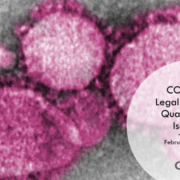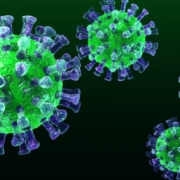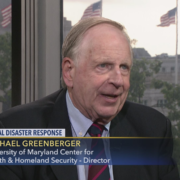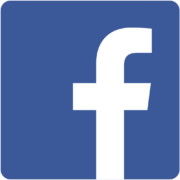Disclaimer: The views and opinions expressed in this article are those of the author and do not
necessarily reflect the views of the Center for Health and Homeland Security.
What was your last conversation about? Were you sharing coffee with your colleagues and discussing Tom’s recent trip to Spain? Brenda was there too and you both lamented being stuck in the office as you listened to Tom describe his adventures. At any rate, you go back to your desk and have a quick scroll through Facebook and suddenly you see an ad for flights to Spain. What’s going on? Is Facebook listening to you through your phone?
While we can’t know for certain, and Mark Zuckerburg has adamantly denied the accusation, it seems unlikely that Facebook is actively listening to your conversations. The first reason why it’s not likely is that you would notice if your phone’s microphone is constantly on and uploading voice data files to the internet on a regular basis. Application and data settings within both iPhone’s and Android allow you to view how much data an app is sending or receiving. While audio files aren’t particularly large, you would still notice an uptick in data usage. Battery usage would also be a concern as phones with an always listening feature for their voice assistant tend to have SoC chips in order to combat the power draw of listening for a particular phrase. Your phone either doesn’t have this chip, or if it does, Facebook does not have access to root permissions to interface with this chip.
The second reason Facebook probably isn’t listening to you is because of the coverage they would receive. More, and more, and more, Facebook keeps appearing in the news under negative light. It’s surprising how viable they are considering the awful things they’ve been found to partake in. All of these news stories would pale in comparison to actual, irrefutable proof that Facebook has active mics to listen to your everyday conversations. Sure, the trope is around and people make jokes about them listening – but if it came to fruition there would (hopefully) be a mass exodus from the website.
The final reason, and perhaps the most upsetting of the three – is that they don’t really need to listen to you. Voice transcription technology has gotten fairly strong as evidenced by our many voice assistants like Amazon Alexa – but the technical power it would take to comb through hours and hours of raw voice recordings, transcript it all, comb through to find relevant conversations, and then voice match it to the particular person they want to would be exhaustive. Instead of that, Facebook has used a variety of smart techniques to build a profile for you. First, even if you’re not on Facebook – they have a profile for you. Second, Facebook can track you outside of Facebook’s website using cookies. On top of those particularly unsettling realizations, Facebook has your contact list (along with the contact list of most of the people in your contact list), your location at most times, your birthday, your likes, the posts you click on, the ads that interest you, your web searching habits, and so on. With all of this information, Facebook can target you pretty well.
So let’s circle back to our initial scenario. Tom’s trip to Spain? Facebook probably knows you and Tom work together, Facebook probably knows that Tom was in Spain, and maybe Brenda seriously wished she was somewhere warm and beautiful. She Googled Spain – enough to trigger an algorithm to send you an ad about flights to Spain, hoping that you and Brenda purchase some flights (netting Facebook some extra cash).
What does that mean for you? Well, it depends on your personal values and what you as an individual get out of using Facebook. They most likely aren’t listening to you through your phone mic, but the idea that they don’t need to is genuinely more worrisome. As of this writing, Facebook made the news again today by admitting they left “hundreds of millions of passwords in plain text”. I’d leave Facebook if I could, and have essentially stopped posting anything to it (even though they own both WhatsApp and Instagram, but that’s a different story), but I haven’t deleted my account because unfortunately Facebook is still an excellent service to stay connected. My high school reunion was organized through Facebook, my graduate school’s events were organized through Facebook, and Facebook remains the easiest option to quickly message someone I don’t regularly text or call.
I have no doubt that as soon as a viable alternative to Facebook appears, people will hop over to it. The problem is that social networking websites are only as helpful as the amount of people using them, and people don’t want to use new ones since they already have the old, more robust, network (R.I.P Google+). While we wait Facebook out we need to encourage our representatives to take a hard look at how we protect citizen’s privacy and the internet as a utility going forward – however given Ajit Pai and his views on net neutrality, the utter incompetency Congress showed while questioning Mark Zuckerburg, and just the general complete lack of oversight surrounding the internet they’ll need a lot of encouragement.






